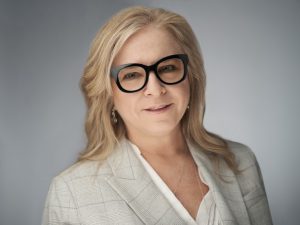Financial Exploitation Happens: Here’s how to Protect Yourself
 It happens more frequently than you might think: A longtime investor suddenly asks his adviser to withdraw the bulk of his account’s funds. The request seems odd because the client normally takes a deliberate approach to managing his money. It’s a red flag that raises a troubling question: Is someone taking advantage of his client?
It happens more frequently than you might think: A longtime investor suddenly asks his adviser to withdraw the bulk of his account’s funds. The request seems odd because the client normally takes a deliberate approach to managing his money. It’s a red flag that raises a troubling question: Is someone taking advantage of his client?
Federal Trade Commission data finds that 2.8 million people were fraud victims last year, losing $5.89 billion. The numbers show that anyone of any age can be a victim. But older investors who may have larger nest eggs tend to be common targets — and they lose more money when scams are successful.
In response to this reality, since 2018 the Financial Industry Regulatory Authority (FINRA) has required investment firms to ask for the name and contact information of a person you trust — in case they see an unusual request and suspect exploitation or fraud. Yet a recent FINRA survey of member firms finds that only 25% or less of new and existing clients have named a trusted contact.

Why aren’t more investors taking this step and what does it really mean for your protection? To help explain the risk of financial exploitation and clarify the vital layer of security that adding a trusted contact can provide, we sat down with Angélica Camp, SOL Client Relationship Manager, for her insights on seven key questions.
Question No. 1: How does financial exploitation happen?
Financial exploitation happens when someone misuses or takes a vulnerable person’s assets for their own gain without permission — often through lies, deception, or duress. Many cases are committed by someone the victim knows. There are all kinds of ways it takes shape, but here are some common examples of how it plays out:
- Abusing power of attorney (POA) or trust authority. It could be that children or other relatives of an elderly parent with dementia have POA or signing authority over an account and start draining the assets from the account.
- Fearing they won’t get “their fair share.” More common in blended families, this can happen as children from a first marriage fear their inheritance may be threatened by a parent’s new spouse and children. They may force or forge changes in beneficiaries on accounts, or pressure the parent to make major financial decisions under false pretenses.
- Befriending with the intent of controlling. The pandemic has made things worse by isolating the elderly and making them more dependent on caregivers. This situation can lead to exploitation if a caregiver uses the relationship to gain access to clients’ money or prevent them from controlling their own assets.
When we’re imagining the full risk of financial exploitation, it’s important to note two facts:
- First, federal law requires the securities and futures industry — and all financial institutions — to report suspected elder financial exploitation. Yearly filings of these “Suspected Activity Reports,” as they’re called, have more than doubled from 2018 to 2021, according to the U.S. Treasury’s Financial Crimes Enforcement Network.
- Second, these types of financial frauds are underreported by victims — whether it’s because they’re unaware it’s happening, they trust the person, they’re ashamed that they were duped, or simply don’t know what to do or where to go for help. So, the real toll is likely far worse.
Question No. 2: What are some of the signs of potential fraud?
Spotting the red flags is so crucial. Here are six common warning signs to look out for:
- Unusually large or excessive withdrawals.
- Sudden changes to financial accounts that haven’t occurred before, like funds transfers or check writing.
- Secrecy surrounding the need for additional funds.
- Extreme urgency about needing the money.
- Abrupt changes in financial documents, such as a will or power of attorney.
- Sudden lifestyle change, such as a new car, new house, or unusually large credit card bills, or just the opposite, such as missing payments, receiving late notices or collections actions.
Question No. 3: Why should I add a trusted contact?
The concept of a trusted contact is really all about adding a layer of security to protect what’s yours. FINRA requires that investment firms make reasonable efforts to get the name and contact information of a person you trust. It’s not mandatory that you supply this information, but there are advantages to taking this simple step.
First off, we think of a trusted contact as an ally in your anti-fraud defenses — and a prevention tool for the firm. At its core, it can be part of planning for the unexpected in case you’re unavailable or unreachable. Next, and crucially, it can help your adviser move fast when fraud is suspected. In fact, firms may put a hold on disbursements of cash or securities from accounts if they suspect the withdrawals or transactions may involve financial exploitation.
Above all, the goal of having a trusted contact in place is to make it tougher for scammers to succeed — preserving your assets and surrounding them with a safety net.
Question No. 4: How does having a trusted contact help me?
Let’s say you’re traveling extensively and hard to reach for a time. Or perhaps you’ve unexpectedly taken ill or have to spend time in the hospital. Having trusted contacts helps us connect with you through them, enabling us to confirm your current contact information, health status and identify any legal guardian, executor, trustee, or power of attorney designations in place in case immediate action is needed.
What’s more, we’d always be able to alert someone on your behalf to urgent, unusual account activity or other possible red flags.
Question No. 5: What authority does a trusted contact have?
In short, naming a trusted contact gives your adviser permission to reach out to the person you name if account activity seems suspicious and if we’re concerned about your wellbeing. Contrary to popular belief, this is a completely different type of authority than that of a POA for finances.
The facts are that a trusted contact can’t execute transactions or engage in account activity. The purpose isn’t to divulge the scope of your account holdings or share statements.
We tend to think that common misconceptions like these may make people hesitant to name a trusted contact — myths that the extent of a trusted contact’s authority reaches farther than it really does. Instead, this resource can help you protect yourself without giving up control over your finances.
Question No. 6: Who should my trusted contact be?
Your trusted contact should be someone you know well and feel comfortable about SOL Capital Management contacting in case we can’t reach you. It should be someone who’s familiar with your overall health, wellbeing, and financial capability. And it should be someone who’s aware of any health (mental and physical) conditions that would prevent you from making sound financial decisions.
Think about people you know who would be a good fit for this job. You should choose someone you trust completely, who is reliable and has your best interests at heart. You should be fully confident in this person’s ability to act ethically and responsibly. This person must be at least age 18 and could be a family member, close friend, or personal attorney.
Question No. 7: How do I add a trusted contact?
Whether it’s about your accounts or those of a loved one, your adviser can be a first line of defense when it comes to preventing financial fraud and exploitation. It’s our duty to protect your assets, and that’s why we encourage you to help us help you. Contact your client relationship manager today to have a conversation about adding a trusted contact for your protection and peace of mind.
Interested in having a personalized conversation about your trusted contacts with SOL Capital and/or custodians?

